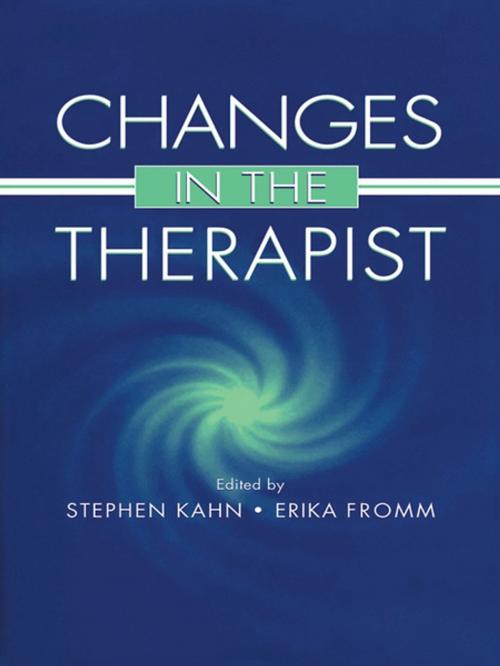Changes in the Therapist
Nonfiction, Health & Well Being, Psychology, Clinical Psychology, Mental Health| Author: | ISBN: | 9781135689308 | |
| Publisher: | Taylor and Francis | Publication: | October 1, 2000 |
| Imprint: | Routledge | Language: | English |
| Author: | |
| ISBN: | 9781135689308 |
| Publisher: | Taylor and Francis |
| Publication: | October 1, 2000 |
| Imprint: | Routledge |
| Language: | English |
Modern therapy has shifted its emphasis to focus on the interpersonal field and on "mutuality of influence." The therapist and the patient are now seen as participating in an ongoing feedback loop, with each influencing the other. This interpersonal focus has brought the therapists and their reactions more into the foreground. Experiences with patients can, in fact, have strong reverberations in practitioners' own lives and can be the cause or source of essential changes in the psyche of the therapist.
This book is the first to explore how efforts to work through issues in therapeutic relationships may permanently affect therapists' beliefs, feelings, and/or actions. The authors, all highly regarded senior clinicians, describe their own reactions and the types of changes that they went through as a consequence of their treatment of a particular patient. They do not make the therapeutic process seem artificially smooth and seamless. In probing their own struggles and difficulties, they illuminate the in-depth workings of the therapeutic relationship. The editors' introduction constructs a systematic framework within which to think about the changes the authors recount. Changes in the Therapist will be of compelling interest to all those involved in therapy.
Modern therapy has shifted its emphasis to focus on the interpersonal field and on "mutuality of influence." The therapist and the patient are now seen as participating in an ongoing feedback loop, with each influencing the other. This interpersonal focus has brought the therapists and their reactions more into the foreground. Experiences with patients can, in fact, have strong reverberations in practitioners' own lives and can be the cause or source of essential changes in the psyche of the therapist.
This book is the first to explore how efforts to work through issues in therapeutic relationships may permanently affect therapists' beliefs, feelings, and/or actions. The authors, all highly regarded senior clinicians, describe their own reactions and the types of changes that they went through as a consequence of their treatment of a particular patient. They do not make the therapeutic process seem artificially smooth and seamless. In probing their own struggles and difficulties, they illuminate the in-depth workings of the therapeutic relationship. The editors' introduction constructs a systematic framework within which to think about the changes the authors recount. Changes in the Therapist will be of compelling interest to all those involved in therapy.















